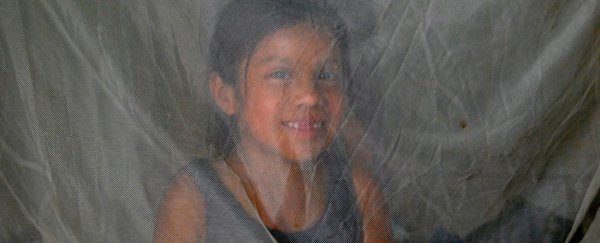Microsoft founder and philanthropist Bill Gates tweeted a GIF this week that shows just how far we've come in the fight to eradicate malaria.
Bill Gates and his wife Melinda have spent a huge amount money trying to develop simple and affordable tools that will help stop the spread of the disease - and one of the projects has been distributing treated mosquito nets around Africa.
And as you can see from Bill's tweet, showing the use of mosquito nets across Africa between 2000 and 2015, we're obviously doing something right.
You can check it out below:
Beautiful map showing progress against malaria—and how much work we still have to do. pic.twitter.com/IYkBQrZNiH
— Bill Gates (@BillGates) July 3, 2016
Despite being relatively uncommon in developed countries, malaria is one of the world's biggest killers, and it mostly affects children under 5.
It's caused by parasitic protozoans, normally from the genus Plasmodium, and is passed on from mosquitos to humans, and then back to mosquitos again to spread the disease further.
The World Health Organisation (WHO) approximates that there were 214 million cases worldwide in 2015, and 438,000 deaths from the resulting disease. That's pretty dire, but back in 2000 that number was 839,000.
Although recent studies have shown that malaria has been around since dinosaurs roamed, Bill Gates is convinced that we can get rid of it – even within our lifetimes.
"Based on the progress I'm seeing in the lab and on the ground, I believe we're now in a position to eradicate malaria - that is, wipe it out completely in every country - within a generation," he wrote back in 2014.
"This is one of the greatest opportunities the global health world has ever had. Melinda and I are so optimistic about it that we recently decided to increase our foundation's malaria budget by 30 percent."
As the GIF shows, there's also still a long way to go when it comes to getting everyone protected by mosquito nets, but 15 years from now, we're hoping that map is a lot greener.
The GIF itself was made based on data from a study published in eLife in 2015 about treated nets, and looking at potential inefficiencies.
On the medical side of things, researchers are also getting closer and closer to a potential vaccine for malaria treatment.
We really hope that Bill Gates is right.
